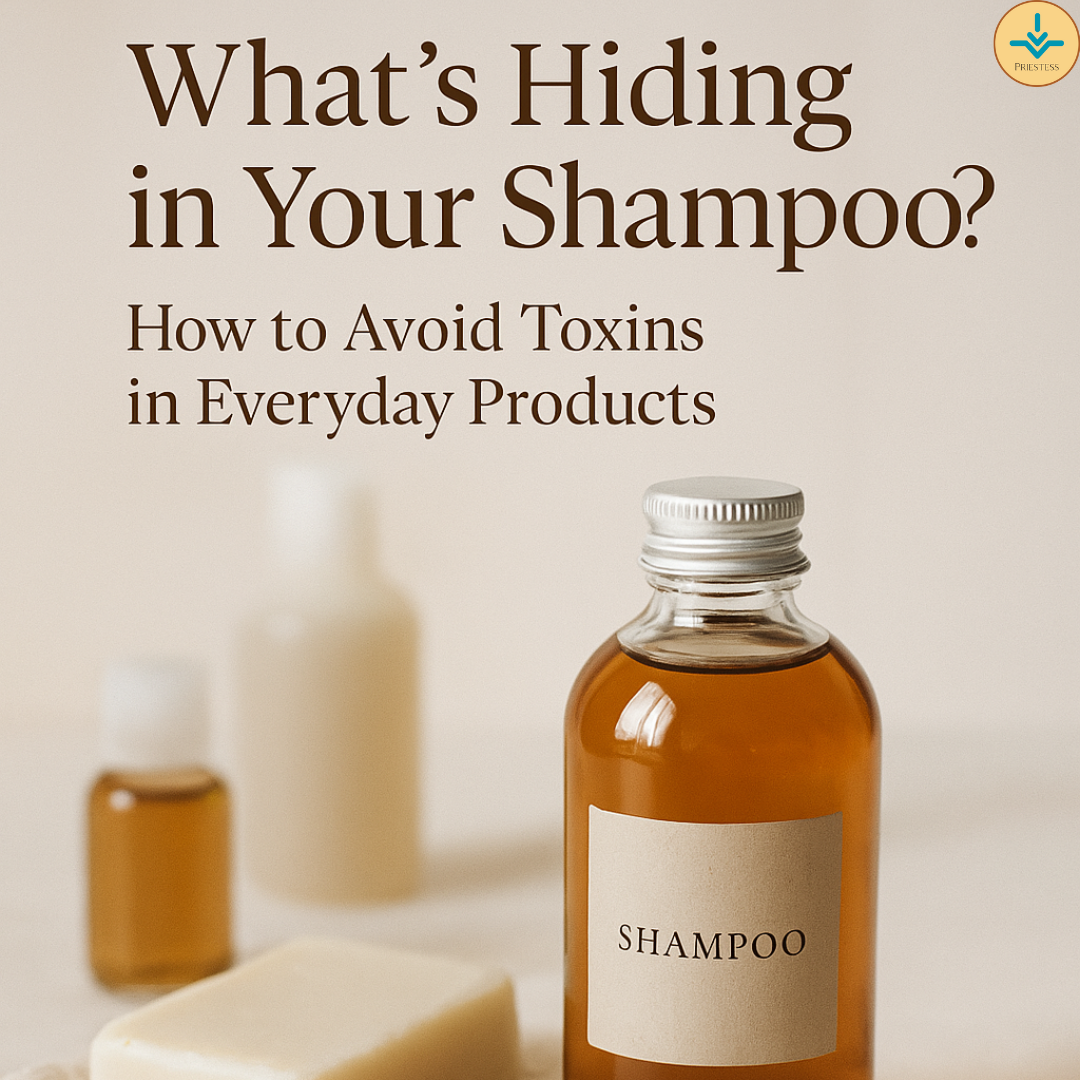
What’s Hiding in Your Shampoo? A Conscious Guide to Avoiding Everyday Toxins
Compartilhar
Clean beauty begins with awareness.
Recent product recalls—including shampoo, household soap, and even well-known beverage brands—have raised an important question: What are we really putting on—and into—our bodies each day?
For those seeking a more natural lifestyle, this moment offers a powerful opportunity to pause, reflect, and begin making more informed choices.
Understanding Hidden Toxins in Personal Care Products
What looks like a harmless list of ingredients on your shampoo bottle may conceal a cocktail of synthetic chemicals, many of which have been linked to skin irritation, hormone disruption, and long-term health concerns.
Here are five ingredients commonly found in mainstream shampoos and soaps:
- Sodium Lauryl Sulfate (SLS): A foaming agent associated with skin dryness and irritation; also a potential endocrine disruptor.
- Fragrance (Parfum): A vague term that may include hundreds of undisclosed chemicals, including phthalates—known for disrupting hormonal balance.
- Methylisothiazolinone (MIT): A preservative linked to allergic reactions and, in some studies, neurotoxicity.
- Polyethylene Glycol (PEGs): Used to soften and thicken, but often contaminated with harmful by-products like ethylene oxide.
- Artificial Colourants (Red 40, Blue 1): Petroleum-derived dyes associated with allergies and sensitivities.
These ingredients are not rare—they are standard in many commercial shampoos and bath products across the UK.
Why Recent Product Recalls Matter More Than Ever
You may have seen headlines about Coca-Cola batches recalled due to contamination or the Elbow Grease Antibacterial Hand Soap recall due to harmful bacteria. These stories highlight a growing issue: safety standards are often reactive, not preventative.
Most personal care products are not subject to rigorous long-term health testing. Many formulations are developed for cost-efficiency, shelf life, and fragrance—not for holistic health.
As consumers, we have to become our own gatekeepers.
Your Skin is Not a Barrier—It’s a Pathway
Contrary to popular belief, your skin is not impermeable. What you apply to it—whether shampoo, lotion, or deodorant—can be absorbed directly into your bloodstream.
Over time, cumulative exposure to toxins can place stress on your body’s detox systems—particularly the liver, kidneys, and lymphatic network—potentially leading to:
- Hormonal imbalances
- Skin conditions
- Fatigue
- Sensitivity to synthetic fragrances
Making the switch to conscious, plant-based alternatives is one of the most impactful changes you can make for your health and wellbeing.
How to Begin Detoxing Your Daily Routine
Transitioning to a non-toxic lifestyle does not need to be overwhelming. Begin with simple, high-impact changes:
- Start with products that stay on your skin—shampoos, face oils, body moisturisers, and deodorants.
- Check the label. Avoid vague terms like fragrance unless every component is disclosed.
- Choose brands that prioritise full transparency and clean, recognisable ingredients.
- Look for natural surfactants derived from coconut or sugar, rather than synthetic foaming agents.
- Don’t be swayed by green packaging—read the ingredient list carefully to avoid greenwashing.
Even one conscious swap makes a difference.
The Priestess Way: Conscious Care for Body and Soul
At Priestess, we believe personal care should be sacred. Our collections are designed not just to cleanse the body, but to support your wellbeing on every level—physical, emotional, and energetic.
We offer carefully selected, clean formulations rooted in ancient wisdom and modern integrity.
No fillers. No synthetic fragrance. No compromise.
Because we know:
Your daily routine is your ritual—and your body deserves reverence, not residue.
Ready to begin your clean-living journey?
Explore our toxin-free Wellness Collection and rediscover the power of conscious care.
